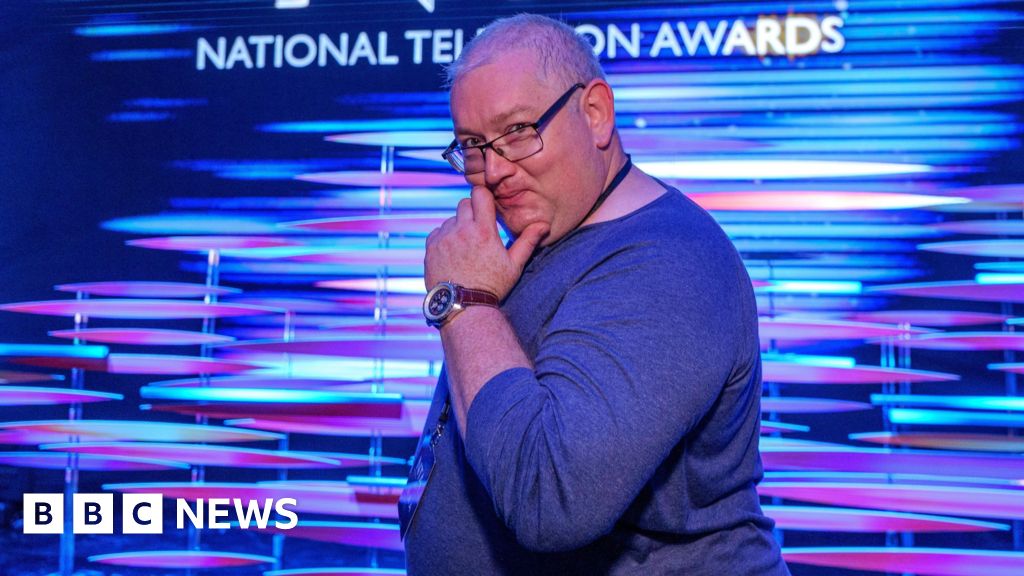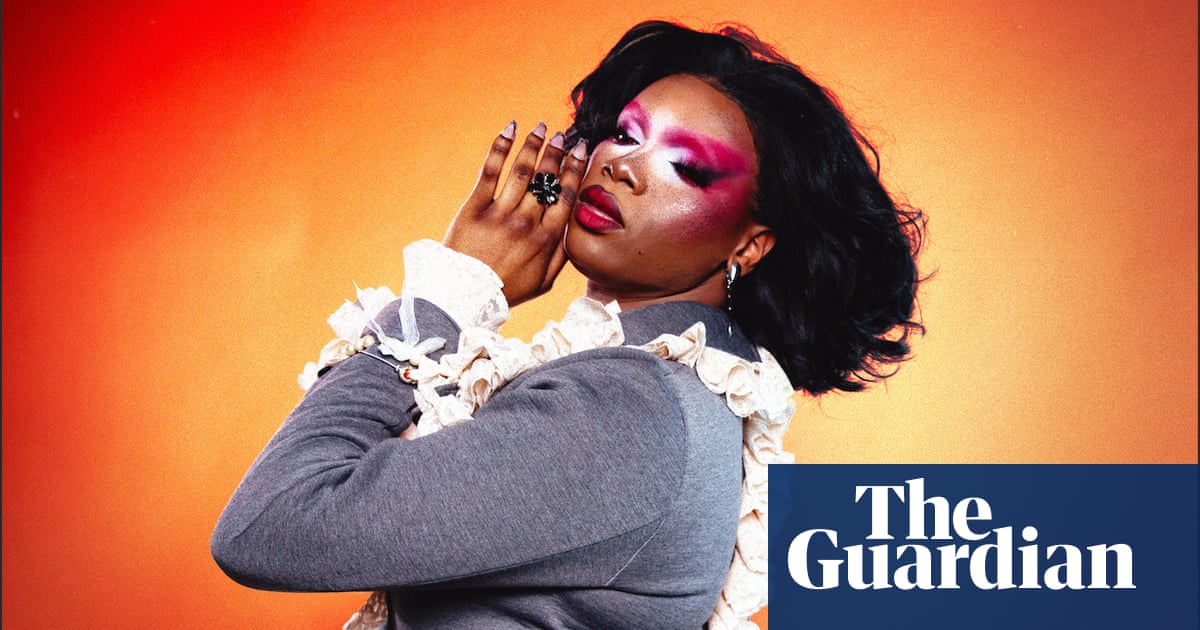It’s been a banner week for South Park. On Tuesday it was announced that parent company Paramount had just struck a five-year, 10-episode-per-season deal with series creators Trey Parker and Matt Stone for the whopping price of $1.5bn.
This comes amid public uproar against Paramount for their cancellation of The Late Show after host Stephen Colbert’s criticism of the studio settling a $16m lawsuit with Donald Trump against CBS (which belongs to Paramount) in alleged exchange for FCC approval for their proposed $8bn merger with Skydance. (Said approval was announced on Thursday, with the extra caveat that Paramount would refrain from producing programs based on supposed diversity, equity and inclusion standards.)
On Wednesday, the season premiere of South Park’s 27th season debuted, and lest you think that Parker and Stone’s billion-dollar deal would keep them from biting the hand that feeds, they came out chomping, delivering sharp digs at Paramount and CBS for their kowtowing to the president’s demands.
But their most brutal stuff was reserved for Trump himself, depicting him as a petty, predatory tyrant (à la their past caricature of Saddam Hussein) overcompensating for a tiny penis – which, in the episode’s jaw-dropping closing moments, they show in graphic detail via a fake ad using the most realistic AI animation seen to-date.
The episode has, in the short time since it aired, proven to be the most show’s most controversial in years. But of course, it’s nothing new for South Park, which is certainly the most controversial American sitcom – animated or otherwise – of all time.
South Park proved controversial even before it went into production. Fox was originally meant to pick up the series – an expansion of Parker and Stone’s 1992 short student film The Spirit of Christmas (Jesus vs Frosty) and it’s viral follow-up The Spirit of Christmas (Jesus vs Santa). But when members of the network objected to the character of Mr Hanky – a talking piece of poop – Parker and Stone nixed the deal, eventually landing at the Paramount unit Cartoon Network.
While other adult-oriented cartoons had paved the way in terms of both popularity and controversy (The Simpsons debuted in 1989 and Beavis and Butt-Head in 1993), it was clear from the start that South Park meant to push the envelope further than anything that came before it, so much so that a tongue-in-cheek disclaimer was inserted at the start of each episode:
“All characters and events in this show – even those based on real people – are entirely fictional. All celebrity voices are impersonated … poorly. The following program contains coarse language and due to its content it should not be viewed by anyone.”
This did little to curb its popularity with young audiences. Within a few episodes of the first season, South Park was a cultural force to be reckoned with. And reckoned with it was, particularly by educational and parental groups who, outraged at its unrelenting dedication to toilet humor, violence and especially profanity, tried their best to get it taken off the air (and, failing that, to ban its merch from schools).
The series embraced this outrage, using it as fodder for meta-commentary by way of a fictional show-within-a-show, Terrance and Phillip, a constant source of outrage for the idiotic and easily led parents of the show’s main foursome. This would culminate in the 1999 feature film, South Park: Bigger, Longer and Uncut, which would – to the surprise of any number of cultural commentators – go on to earn as many accolades (including an Oscar nomination for best original song) as it did objections.
As the series continued, its focus started to shift. It dropped popular but stale gags (such as the recurring “You killed Kenny!” bit), while evolving its characters in fascinating ways. Nowhere is this more evident than Eric Cartman, the spoiled, obese, bigoted breakout character. While always something of an antagonist, by the fifth season he was murdering the parents of a school rival and feeding them to him à la Titus Andronicus. Things only got darker from there, with Cartman coming to embody seemingly every hateful and degenerate vice humans are capable of. The fact that he would simultaneously remain the show’s most popular and beloved character brooked no shortage of handwringing from the show’s detractors (and often even their fans), who worried that viewers, particularly impressionable youngsters, were taking all the wrong messages from it.
At the same time, messaging became a central part of South Park. While it always contained some level of social commentary and political satire, that aspect moved to the forefront. The singular schedule that Parker and Stone kept – episodes are developed and produced within a week of airing – allowed for them to take on hot button news items while they were still in the headlines. This was, and for the most part remains, unheard of when it comes to sitcoms (especially animated ones, which usually require a longer production schedule). Viewers were shocked when South Park ended up airing episodes about the Elián González custody and Terry Schiavo medical battles in real time (the latter airing mere hours before Schiavo died).
Parker and Stone have described themselves as libertarians (although they’re Gen X libertarians and thus less simpatico with today’s breed) which meant that they were often pissing off both liberals and conservatives. For the most part, they were less interested in preaching their personal ideology than they were calling out others’ hypocrisy. As a result, no sacred cows were left untipped.
Given the show’s sacrilegious origins, it’s no surprise that it’s biggest controversies came from their skewering of religion. Perhaps their most infamous episode to date is season nine’s Trapped in the Closet, which used the ridiculous R Kelly song to poke fun at famous Scientologists Tom Cruise and John Travolta. Even though the crux of the episodes revolves around those stars’ rumored sexuality, the real target was the Church of Scientology itself, which Stone and Parker depicted as a cult and scam, going so far as to animate, in detail, the bonkers mythology at the heart of the religion, which the church had strived to keep secret from the larger public.
(Knowing how litigious the Church of Scientology is, everyone who worked on Trapped in the Closet was credited as John/Jayne Smith.)
Comedy Central moved the episode from its original air date, purportedly at the demand of Cruise, who was starring in Paramount’s upcoming blockbuster Mission: Impossible 3, although all parties have denied this. What’s not disputed is that Parker and Stone threatened to quit the show if the episode wasn’t released. It eventually did air (after the action sequel came out), and although the cultural impact is impossible to quantify, it’s not coincidental that it marked the start of a hard public scrutiny of the Church of Scientology.
One proven result of the episode was the high-profile departure of one of the show’s original voice actors, Isaac Hayes, who was a Scientologist. This, in turn, would lead to the show killing off his character, Chef, just a couple of years before Hayes himself passed away.
Similar episodes targeting Mormonism and Catholicism followed, and while they brooked their share of objections from the Church of Latter-day Saints and various Catholic leagues, they were teacup tempests compared with what came in season 10.
Amid an increasingly violent reaction from Islamic extremists over European cartoonists’ satirical depictions of the prophet Muhammad (something forbidden by certain sects within the broader religion), Parker and Stone inserted themselves into the issue by attempting to do just that (albeit by using rival animated show Family Guy as their in-universe proxy). Despite the unassailable moral point they were attempting to make – if they were allowed to make fun of every other religion’s sacred figures, they should be able to do so with Islam without fear of violent reprisal – the network once again balked, airing the episode but placing a black “censored box over the character of Muhammad.
Thankfully, this did not lead to any violence, although when Stone and Parker touched on the issue again during the 14th season (in episodes 200 and 201, where the mere name Muhammad was censored by Comedy Central) it did lead to public death threats against them, as well as a demanded apology from Malaysia’s main conservative party.
What’s most ironic about all of this is that South Park had already shown Muhammad in an early season, and even included the character in its original title sequence. No one objected to this at time, although this was before 9/11, the wars in Afghanistan and Iraq, and the global sea change those atrocities ushered in. Today, all these episodes have been scrubbed from streaming, although some are available on their respective seasons’ original DVD releases.
Attempts to get South Park banned in various parts of the globe have been hit and miss, but China eventually succeeded. Already angry with the show for dealing with banned subject matter (including the Dalai Lama) and its intentionally over-the-top ethnic humor, the final straw came via the season 23 episode Band in China, which directly targeted American corporations’ expansion into the Chinese market in spite of the Chinese Communist party’s broad censorship and brutal repression of political dissidents.
As much as they have managed to piss off social/religious conservatives and authoritarian regimes, Parker and Stone have also proven a constant thorn in the side of outraged liberals and leftists, less so because of any single issue they have dealt with – although their mocking of Al Gore’s warnings over climate change (represented in the show as a made up cryptid called ManBearPig) certainly earned them lots of criticism, which they eventually acknowledged, going so far as to issue a begrudging on-air mea culpa – than a larger feeling of irony-poisoned political nihilism.
Certainly, much of modern conservative ideology is indistinguishable from the intentionally offensive antics of Cartman. One need only look at the volume of social media accounts belonging to rightwing shitposters that use South Park-style illustrations for their avatars and profile pics (although this trend isn’t nearly as prevalent as it was between 2010 and 2020).
Over the past several seasons, as well as the handful of direct-to-streaming “movies”, South Park has taken on the right’s favorite issue, wokeness (in 2015, they introduced a new character, PC Principal, who embodies all of the worst qualities of overly sensitive millennials).
At the same time, they were lampooning Trump, although in a less direct way than past public figures, choosing to use the character of Mr Garrison – the show’s resident hedonist reactionary – as an analog. But in 2017, Parker publicly announced that they would stop making Trump jokes, as he’d grown bored of them and didn’t want South Park to resemble supposedly liberal institutions like CNN. This response earned praise from the conservative figures, including Donald Trump Jr (who would also go on to praise a recent South Park special for its woke pop culture reboots).
Which brings us to the surprise of this most recent season premiere. While it’s hardly surprising that Parker and Stone would reverse course, given the extremity of Trump’s corruption and attacks on the first amendment, the directness of their attack still came as a surprise to both fans and detractors alike. Hours after episode aired, the White House released an enraged response, in which they accused South Park and its creators of being hypocritical and inauthentic, while also claiming it hadn’t been relevant in 20 years.
Obviously, any show that just inked a $1.5bn deal can’t be realistically called irrelevant, but it has been a minute since South Park has made headlines. While this isn’t new territory for the series, something feels different this time. There is a real sense of shock and betrayal coming from the right. Undoubtedly, this is because they recognize that much of the show’s fanbase is composed of their supporters. Unlike the weak tea being slung by Colbert and his ilk, this isn’t a case of preaching to the choir. While it’s ridiculous to think that South Park will be the catalyst for any real political change, it’s telling how hysterical the right’s ferocity against it has been over the course of just a few hours. That this is coming on the heels of broader backlash against the president from supposedly sympathetic sources over his refusal to release the Epstein files shows that, for the first time since the election, their back is truly against the wall.
Trump is the most easily offended man alive, while Parker and Stone have never backed down from a fight. If the history of South Park is any indication, this latest controversy is just the tip of the iceberg (or, rather, the tip of a minuscule talking phallus).

 14 hours ago
1
14 hours ago
1










 English (US)
English (US)